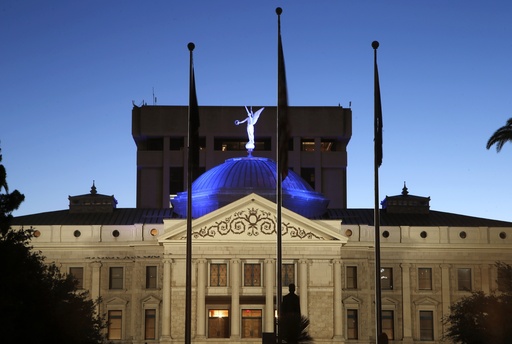
PHOENIX — Recently, state Sen. Mark Finchem of Arizona received a speeding ticket, but he faced no real repercussions. This is due to the provision in the Arizona Constitution that grants state lawmakers immunity from civil proceedings and arrests related to most offenses, except for treason, felony, and breach of peace, during legislative sessions and for 15 days prior. This type of legislative immunity is not unique to Arizona and is common in many states, allowing politicians to bypass minor legal issues, including traffic violations.
Legal scholars suggest this immunity is rooted in the historic separation of powers concept, established centuries ago in the English Bill of Rights as a defense against monarchical intimidation of legislators. Over time, this privilege has been invoked in a variety of contexts, although not siempre successfully. For instance, in 2019, a West Virginia politician claimed immunity after a violent episode, while a Wisconsin lawmaker contended he should not be compelled to testify regarding his discussions with former President Donald Trump about the 2020 election results in 2022. Additionally, last year, Kansas lawmakers were protected when accused of spreading misinformation via social media posts related to a shooting at a celebratory event.
In Arizona, however, not everyone is in favor of this immunity. Republican Rep. Quang Nguyen has proposed a resolution seeking to eliminate this protection for traffic infractions. If approved, it would appear on the 2026 ballot for voter consideration. “The citizens we represent are expected to abide by traffic regulations, and lawmakers should likewise be accountable,” Nguyen remarked. He represents a district that encompasses both Prescott, where the incident occurred, and the area where Finchem serves.
Following the citation, Finchem reached out to Prescott’s police chief, requesting that the ticket be dismissed, which it was on February 4, though the option to reissue it remains open, as per court documents. A spokesperson for Finchem did not provide any comments concerning this situation.
Legislative immunity is generally classified into two main categories: protecting lawmakers’ speech and debate rights, and shielding them from arrest. According to the National Conference of State Legislatures, 43 states offer some form of protection for speech and debate, while about 45 provide immunity from arrests related to legislative duties. The specifics of this immunity can greatly differ among states; for example, New Mexico shields lawmakers from arrest while traveling to and from legislative duties, a stipulation absent in Arizona.
Moreover, members of Congress also enjoy legislative immunity, although courts interpret this privilege narrowly. Former Democratic Senator Bob Menendez from New Jersey sought to claim this immunity in a bribery case last year, but ultimately received an 11-year prison sentence instead.
In a recent House floor address, Republican U.S. Rep. Nancy Mace of South Carolina alleged that her ex-fiancé assaulted her and harmed other individuals, arguing she was protected from civil lawsuits due to the “speech and debate” clause.
While the frequency of legislative immunity claims in Arizona since its inclusion in the state constitution in 1912 is uncertain, Finchem is not the first to rely on it. In a notable instance in 2012, then-state Sen. Scott Bundgaard invoked this immunity after being involved in a domestic incident while being pulled over, resulting in his release while his girlfriend was jailed. Bundgaard later faced prosecution and pleaded no contest to a misdemeanor charge.
Another incident occurred in 2018 when then-state Rep. Paul Mosely was filmed boasting about driving up to 140 mph during a traffic stop. Finchem was serving in the House at that time and filed an ethics complaint against Mosely.
Efforts to repeal this immunity in Arizona have not been successful in the past. Although former Republican Governor Doug Ducey expressed support for such a repeal in 2019, lawmakers did not pursue it further. A similar bill was introduced by Democrat Steve Gallardo in 2012, but it failed to gain support as well.
Gallardo, who now holds a position on the Maricopa County Board of Supervisors, acknowledges the historical rationale for legislative immunity at the onset of statehood but argues that it is not necessary in contemporary politics. “Those who exploit this privilege undermine the integrity of the institution and their responsibilities to constituents,” he stated. “It sends the message that they consider themselves above the law.”

